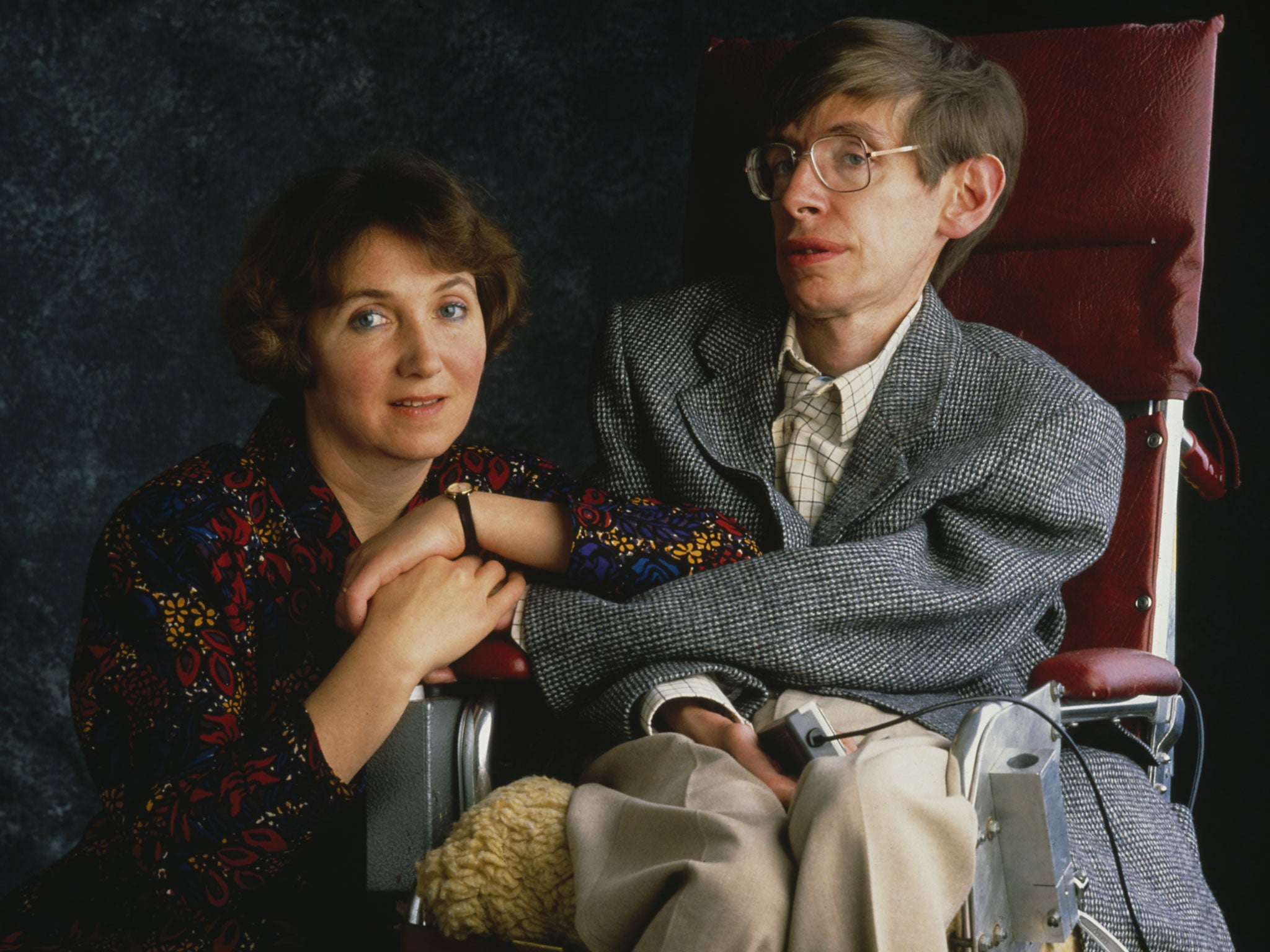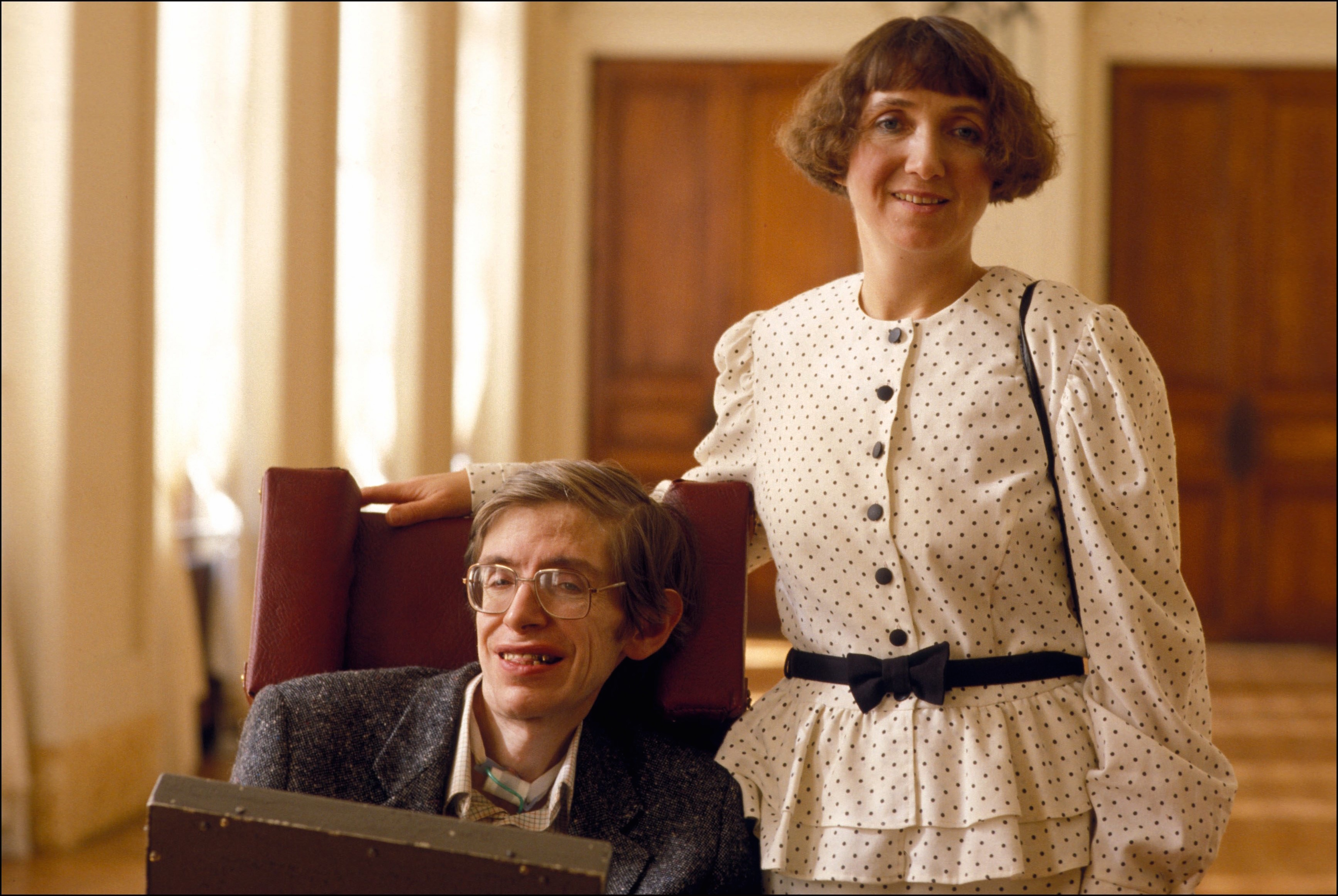Jane Hawking: A Woman Of Science And Resilience
The world of science has long been dominated by men, but one woman has stood out for her groundbreaking work and unwavering dedication to her craft. Jane Hawking, the wife of renowned physicist Stephen Hawking, has been a beacon of inspiration for generations of scientists and non-scientists alike. Her remarkable life story is a testament to the power of resilience, determination, and the unrelenting pursuit of knowledge.
Born in 1944, Jane Hawking grew up in a family of modest means, but her parents instilled in her a love of learning that would serve her well throughout her life. She attended the University of Cambridge, where she met her future husband Stephen, a young physics student at the time. The two married in 1965, and their union would become the stuff of science legend.
Despite her husband's illness, which left him unable to walk or speak, Jane Hawking became his primary caregiver and advocate. She deftly managed the household, raised their children, and continued to pursue her own academic interests. In fact, Jane went on to earn a PhD in neuroscience from the University of Cambridge, becoming one of the first women to do so in the field.
The Challenges of Being a Caregiver and a Scientist
Jane Hawking's life was marked by numerous challenges, both personal and professional. Her husband's debilitating illness required constant care and attention, while her own desire to pursue a career in science was constantly at odds with her responsibilities as a wife and mother. However, Jane persevered, using her intelligence, wit, and determination to overcome the obstacles in her path.
She worked tirelessly to support Stephen's research, often taking on the role of nurse, cook, and personal assistant all at once. Her dedication to her husband's work was unwavering, and she became an integral part of his research team. In fact, Jane played a key role in the development of Stephen's groundbreaking book, "A Brief History of Time," which has since become a classic in the field of physics.
The Science Behind Stephen's Research
Stephen Hawking's research was centered on cosmology, the study of the origin and evolution of the universe. His work was revolutionary, and it challenged many of the long-held theories of the time. Jane Hawking was deeply involved in the development of his research, often serving as a sounding board for his ideas and providing valuable feedback.
Together, the Hawking couple developed a unique approach to research, one that combined theoretical physics with experimental methods. Their collaboration was a model for the scientific community, demonstrating the importance of interdisciplinary research and the value of collaboration between scientists from different fields.
The Role of Neuroscience in Stephen's Research
One of the key areas of research that Jane Hawking explored was the neural basis of consciousness. Her work in neuroscience helped inform Stephen's theories on black holes and the nature of space-time. By studying the brain and nervous system, Jane was able to shed light on the mechanisms that underlie our perception of reality.
Her research also helped to challenge the long-held idea that the human brain is a fixed, unchangeable entity. Instead, Jane's work suggested that the brain is highly plastic, capable of reorganizing itself in response to injury or disease. This idea has far-reaching implications for our understanding of the nature of consciousness and the human experience.
The Legacy of Jane Hawking
Jane Hawking's contributions to science and society extend far beyond her work with her husband. Her legacy is a testament to the power of resilience and determination, inspiring generations of scientists, educators, and students.
In 2014, Jane Hawking published her own memoir, "Traveling to Infinity: My Life with Stephen." The book provides a unique insight into the lives of two brilliant scientists, revealing the challenges they faced and the ways in which they overcame them.
Through her writing, Jane Hawking has also become a vocal advocate for women's rights and education. She has spoken out on the importance of promoting STEM education for girls and women, highlighting the many barriers that prevent them from pursuing careers in science and technology.
The Importance of Representation and Inclusion
One of the key themes that emerges from Jane Hawking's life story is the importance of representation and inclusion. Her experiences as a woman in a male-dominated field are a reminder of the many obstacles that women face in the pursuit of scientific careers.
However, Jane Hawking's story also highlights the importance of creating opportunities for women and underrepresented groups to pursue careers in science. By providing support and resources for emerging scientists, we can help to ensure that the next generation of leaders is diverse and inclusive.
Conclusion
Jane Hawking's life story is a testament to the power of science and the human spirit. Her unwavering dedication to her craft, combined with her resilience and determination, has inspired generations of scientists and non-scientists alike.
As we look to the future, it is essential that we recognize the importance of representation and inclusion in science. By creating opportunities for underrepresented groups to pursue careers in STEM fields, we can help to ensure that the next generation of leaders is diverse and inclusive.
Jane Hawking's legacy is a reminder that science is for everyone, regardless of gender, background, or ability. Her story will continue to inspire and motivate people around the world, a powerful reminder of the importance of pursuing a life of learning and discovery.
Key Takeaways
• Jane Hawking's life story is a testament to the power of science and the human spirit.
• Her unwavering dedication to her craft, combined with her resilience and determination, has inspired generations of scientists and non-scientists alike.
• The importance of representation and inclusion in science cannot be overstated, particularly for women and underrepresented groups.
• Jane Hawking's legacy is a reminder that science is for everyone, regardless of gender
Hisashi Ouchi Real Po
Maureen Bates
Connieenio Case Pos
Article Recommendations
- Sophie Rain
- Kaitlyn Krems Fans
- Katy Lane Newcombe
- Fitbryceadams
- Justin Beiberead
- Aishahd
- Is Gloria Borger Ill
- Chris Mcnally
- Tommy Mottola
- Mmashare



